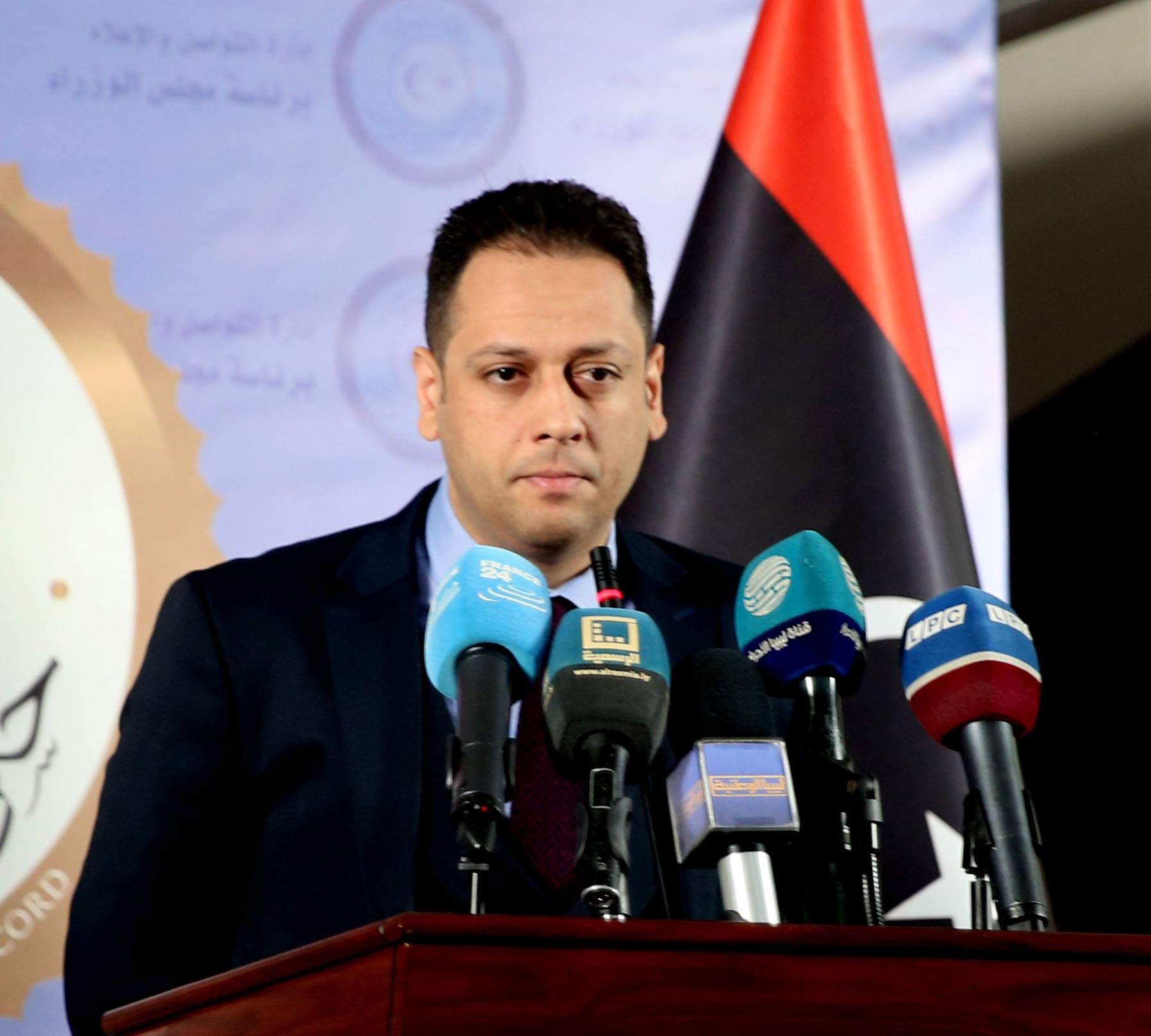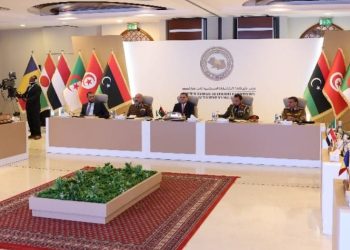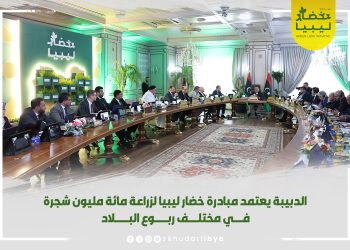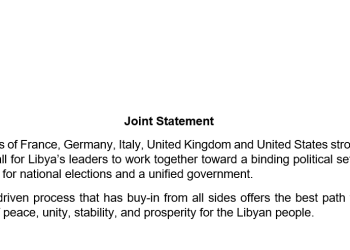By Sami Zaptia.
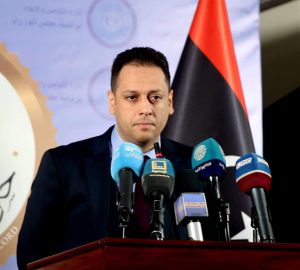
London, 15 February 2019:
Mohamed El-Sallak, the spokesperson for Faiez Serraj, the head of Libya’s Presidency Council and Government of National Accord, said during a press conference on Thursday at the Media Center of the Prime Minister’s office in Tripoli, that Serraj had no quarrel with any Libyan party in Libya’s south.
Southern Libya
Serraj was keen to come across as being neutral between the various southern tribes and minorities in southern Libya such as the Tebu and Tuarag who’s role was pivotal in the military battle to impose security, control the south, fight foreign mercenaries and “liberate” the Sharara oilfield.
Serraj said that it was the shared goal of all Libyans to fight against terrorism, organized crime and mercenaries from outside the country’s borders, and illegal immigration gangs.
This was an attempt by Serraj to come across as being strong against fighting crime and foreign mercenaries and mitigating accusations by the south that Tripoli did not care about the south.
Dialogue not war
Serraj also renewal his invitation for organized work and the unification of efforts, in particular under the umbrella of legality, and the emphasis on his readiness for cooperation in this regard.
He stressed the approach taken by his Government of National Accord from the beginning of its reign, which is to resolve all political differences between Libyans through dialogue and not the battlefields.
This was a not-so-coded message to Khalifa Hafter and his Libyan National Army (LNA) who’s is perceived to be seeking a military solution to Libya’s political problems.
Oilfields in the south
With regards specifically to the oilfields in the south, Serraj stressed the need to remove Libya’s oilfields and the source of Libyan wealth, from any political friction or controversy,
He stressed the need to keep the oilfields under the direction of the internationally recognized National Oil Corporation (NOC), with its current headquarters in Tripoli, and under the protection of Petroleum Facilities Guards (PFG).
With regards to the exclusive jurisdiction of the Tripoli NOC, Hafter has already handed over oilfields to Sanalla’s Tripoli and the House of Representatives (HoR) has already called on him to lift the force majeure status at Sharara.
However, Hafter will disagree with Serraj on handing Sharara back to the incompetent and untrustworthy PFG. It was under the local PFG that Sharara was occupied by protesters/armed groups which led to its shut down.
Serraj and his administration are too isolated in Tripoli. Their legitimacy, traction and effectiveness does not extend as far as southern Libya. The PFG is in theory aligned to the Serraj administration, yet Serraj had been unable to control it.
Local security forces are often too partisan and too sympathetic to locals and local issues – at the expense of the bigger national picture of keeping the oil flowing.
The events since the 2011 February Revolution, including Jadrans double attempts to hold Libya to ransom over the oilfields show that a national entity needs to be in charge of Libya’s oilfields.
Constitution and elections
With regards to the election process, Serraj expressed his full support for the way forward in creating the atmosphere for a parliamentary and presidential electoral process on a constitutional basis.
He vowed to provide all necessary support for their achievement and stressed that elections are the only way for the Libyan people to choose their representatives, and renewed his support for the convening of the National Conference (Multaqa) under the auspices of the United Nations.
Economic reforms and 2019 Budget
On Libya’s economic reforms introduced last September, Serraj confirmed the continued cooperation with the Tripoli Central Bank of Libya and the competent authorities, to complete the reforms, which he said have reflected positively on Libyan citizens, as well as the imminent completion of the 2019 Financial Arrangements (Budget).


